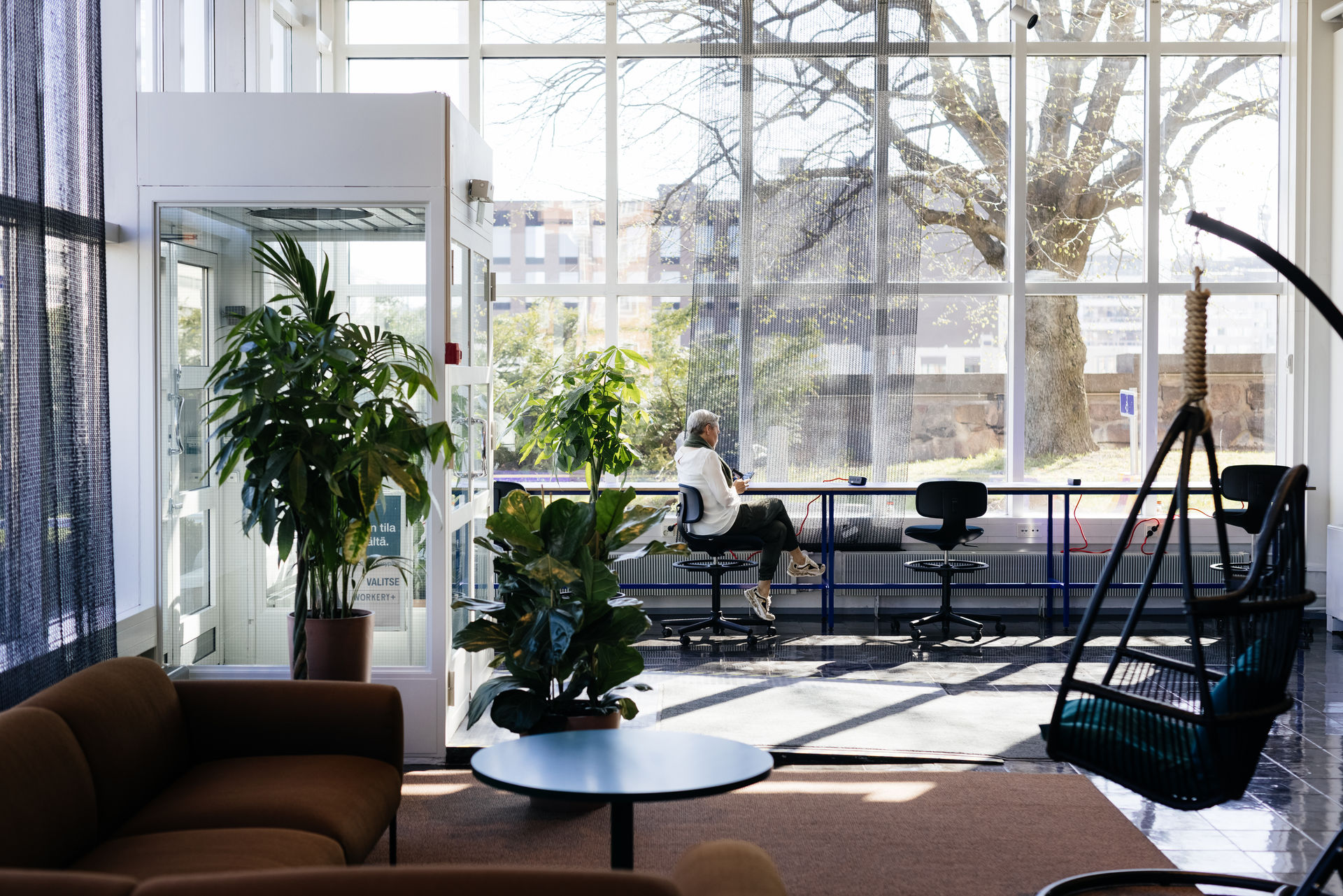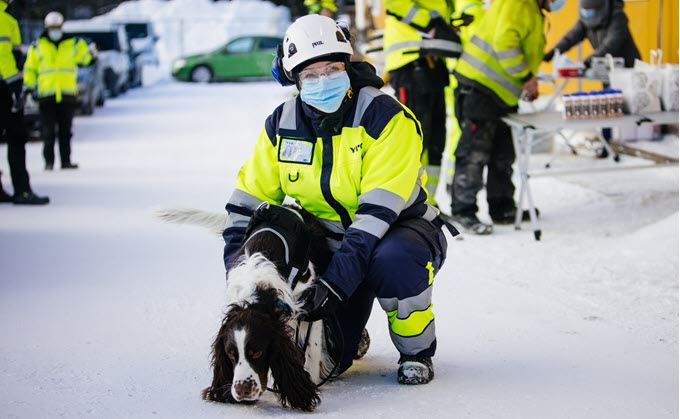Sustainable data centers as a service
When corona closed the world, the construction industry was also on the verge of something new. The COVID-19 pandemic forced YIT to take a huge leap, both digitally and in many practical areas, to work safely on construction sites and in offices and to sell new apartments smoothly.
YIT has invested in the prevention of coronavirus infections throughout the pandemic. At the outset, improving the hygiene of the sites was an important way for preventing the spread of the disease. YIT implemented a hygiene pilot in early autumn 2020, with which the cleanliness and hygiene of the dressing rooms and washrooms at the participating sites were examined as part of the weekly measurement of the site. In practice, the cleanliness of the tables and the sufficiency of soap with hand wash points were taken care of more than before at the construction sites. Printed COVID-19 instructions were placed in visible places. The benefits of the pilot were positively surprising: for example, the number of seasonal flu illnesses decreased significantly due to improved hygiene practices.
As part of the improvement of health in construction sites, corona tracker dogs were also involved in order to find asymptomatic carriers of the coronavirus at an early stage. In the experiment, the dogs sniffed nearly 1,000 samples collected from different construction sites. In addition, YIT built a movable COVID-19 test centre on the site with Mehiläinen. Thanks to corona dogs and rapid testing, one large construction site,was able to prevent the spread of infection. With the help of the experiment, it was possible to build a suitable test model for large construction sites which would reach professionals employed by different employers within a few hours.
The COVID-19 pandemic accelerated the digital leap in the traditionally very site-oriented construction industry. A significant number of YIT employees, as well as all those who were not needed on site at construction sites, switched to remote work. A new stage in service development was also put in place.

One of the most significant changes is the electronic housing sales. YIT invested in its development even before the COVID-19 pandemic, so it was possible to make the transition quickly both in Finland and in other countries. According to YIT Chief Enterprise Architect Marko Väyrynen, the biggest digital leap was in Russia: housing sales offices closed on Saturday, March 28, 2020 at the order of the authorities, and already the following week all sales activities had been transferred to digital and people to remote working.
“The COVID-19 pandemic accelerated the transition of housing sales in Russia to the digital world. The good news was that we had been developing it for a long time and everything was ready. Nevertheless, it was a big leap for the whole organisation”, Väyrynen says.
Due to corona, YIT's agile development cycles were also re-prioritised in order to focus on the right issues for the situation. The work paid off: in just 10 weeks after the start of the pandemic, YIT released a new version of the YIT Plus service for customers and built a streaming studio at the Head Office for remote demonstrations of the listings, among other things.
When it became clear that the COVID-19 pandemic would not be over in weeks or even months and would change working life, YIT conducted a Year Zero survey on the future of work. One of its concrete measures was the opening of Workery+ in Vallila in May 2021.
Read the whole article in our Newsroom
